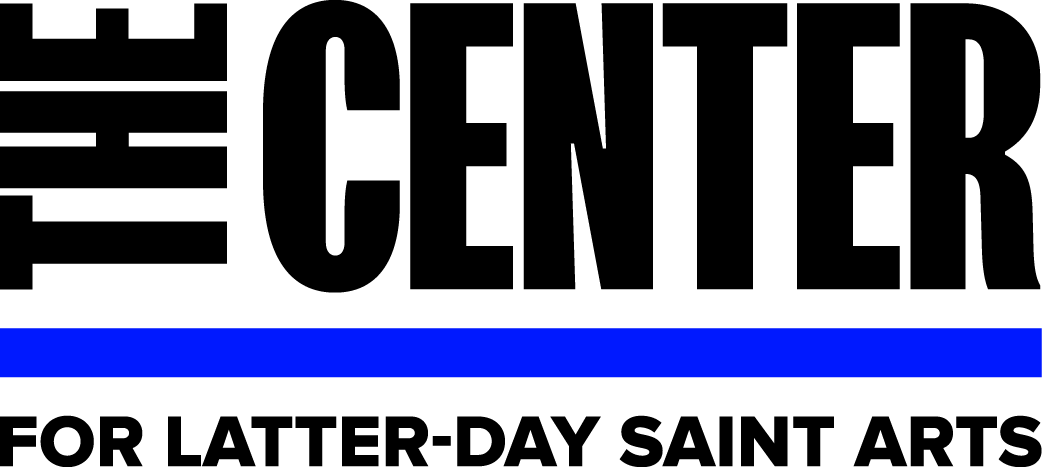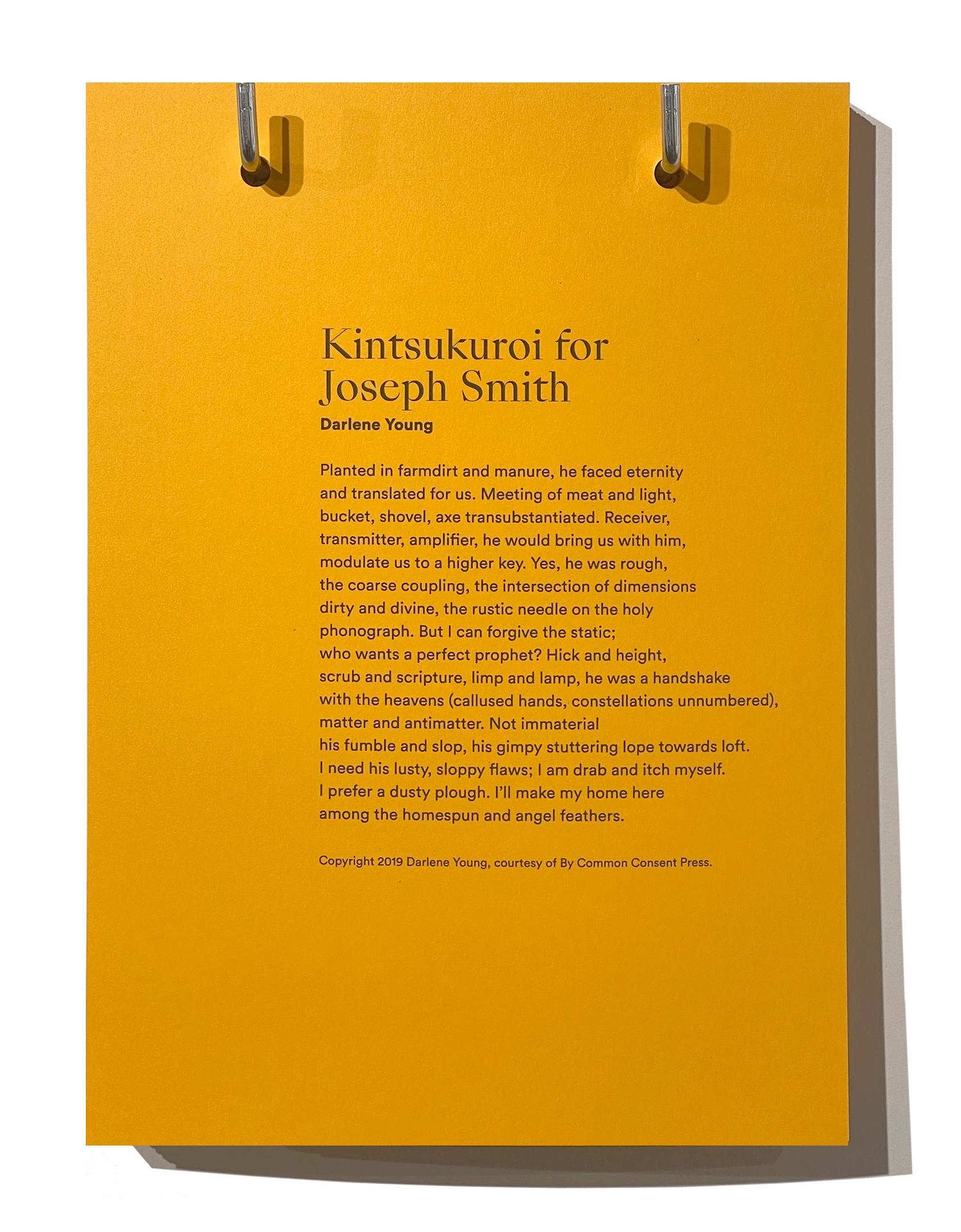July 28-August 3: D&C 84
"The Power of Godliness"
Darlene Young (American, born 1970)
Kintsukuroi for Joseph Smith (2019)
Poem, inkjet print on paper, dimensions variable
Design by Cameron King
Courtest of By Common Consent Press and the artist
For the exhibition, Great Awakening: Vision and Synthesis in Latter-day Saint Contemporary Art that was displayed in 2021 at the Center Gallery in New York City, the poet Darlene Young wrote about a traditional Japanese technique of repairing broken pottery. The pieces are glued back together with lacquer mixed with gold, and the shiny veins are prized for their honor of the original object as well as the love and care to preserve it, even if it is damaged.
In Doctrine and Covenants 84, the Lord outlines the responsibilities of the priesthood and the blessings of His covenant—a sacred power meant to bind heaven and earth through flawed, mortal hands.
Joseph Smith is portrayed in this poem as rough, unrefined, and deeply human—"a dusty plough" rather than polished porcelain. And yet, through him came divine light and restored covenants. Like gold seams in broken clay, God’s power shines through imperfect people in the form of priesthood ordinances. The poem invites us to embrace the beauty of the broken and to find holiness as homespun elements mingle with the divine.
Gospel Questions
1. As an apostle, Elder Russell M. Nelson, in describing priesthood power, explained: "In these latter days, we know there will be earthquakes in diverse places. Perhaps one of those diverse places will be in our own homes, where emotional, financial, or spiritual 'earthquakes' may occur. Priesthood power can calm the seas and heal fractures in the earth. Priesthood power can also calm the minds and heal fractures in the hearts of those we love" (Russell M. Nelson, The Price of Priesthood Power, April 2016 General Conference). In what ways can priesthood power heal fractures in your home or in the hearts of those you love? What can you do to access this healing priesthood power?
2. Think of the last priesthood ordinance in which you participated, either as a receiver, conduit, or observer. How was the "power of godliness" manifest on this occasion? (D&C 84:20)
3. The Prophet Joseph Smith taught, “Friendship is one of the grand fundamental principles of 'Mormonism”' [Teachings of Presidents of the Church: Joseph Smith (2007), 463]. In several places in this week's reading, Jesus refers to us as His "friends" ("...ye are my friends" D&C 84:63; and again, I say unto you, my friends" (D&C 84:77). How can you be a good friend to Jesus?
For Children & Youth
We all have heroes. These are the people we see as so special that we want to be like them. Of course, all men and women have flaws. Nobody is perfect. In this poem about Joseph Smith, the poet decides that she is drawn to the prophet Joseph Smith and sees in him aspects of herself, perfect and imperfect. Who is your hero and why?
Gospel Questions
1. The revelation in this section was received as a group of Saints "united their hearts and lifted their voices on high" (D&C 84:1). Have you ever been in a situation (maybe a collective prayer for someone or something) where you felt your heart united with others? How did you feel about the others with whom you were united in your heart?
2. The scriptures refer to the "keys" of the priesthood" (D&C 84: 19, 26). What do you think these keys open? What have the priesthood keys opened for you (whether you are an actual holder of the keys or not)?
3. Jesus explains that we all work together like the parts of a body and all parts are needed for the system to work (D&C 84:109-110). What part of the body do you think you are most like and why?





